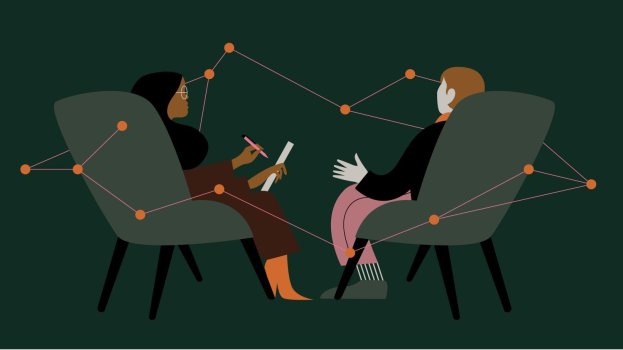K
Kathleen Martin
Guest
Kevin Cowley remembers many things about April 15, 1989. He had taken the bus to the Hillsborough soccer stadium in Sheffield, England, to watch the semifinal championship game between Nottingham Forest and Liverpool. He was 17. It was a beautiful, sunny afternoon. The fans filled the stands.
He remembers being pressed between people so tightly that he couldn’t get his hands out of his pockets. He remembers the crash of the safety barrier collapsing behind him when his team nearly scored and the crowd surged.
Hundreds of people fell, toppled like dominoes by those pinned in next to them. Cowley was pulled under. He remembers waking up among the dead and dying, crushed beneath the weight of bodies. He remembers the smell of urine and sweat, the sound of men crying. He remembers locking eyes with the man struggling next to him, then standing on him to save himself. He still wonders if that man was one of the 94 people who died that day.
The Trevor Project, America’s hotline for LGBT youth, is turning to a GPT-2-powered chatbot to help troubled teenagers—but it’s setting strict limits.
These memories have tormented Cowley his whole adult life. For 30 years he suffered from flashbacks and insomnia. He had trouble working but was too ashamed to talk to his wife. He blocked out the worst of it by drinking. In 2004 one doctor referred him to a trainee therapist, but it didn’t help, and he dropped out after a couple of sessions.
But two years ago he spotted a poster advertising therapy over the internet, and he decided to give it another go. After dozens of regular sessions in which he and his therapist talked via text message, Cowley, now 49, is at last recovering from severe post-traumatic stress disorder. “It’s amazing how a few words can change a life,” says Andrew Blackwell, chief scientific officer at Ieso, the UK-based mental health clinic treating Cowley.
What’s crucial is delivering the right words at the right time. Blackwell and his colleagues at Ieso are pioneering a new approach to mental-health care in which the language used in therapy sessions is analyzed by an AI. The idea is to use natural-language processing (NLP) to identify which parts of a conversation between therapist and client—which types of utterance and exchange—seem to be most effective at treating different disorders.
The aim is to give therapists better insight into what they do, helping experienced therapists maintain a high standard of care and helping trainees improve. Amid a global shortfall in care, an automated form of quality control could be essential in helping clinics meet demand.
Continue reading: https://www.technologyreview.com/2021/12/06/1041345/ai-nlp-mental-health-better-therapists-psychology-cbt/
He remembers being pressed between people so tightly that he couldn’t get his hands out of his pockets. He remembers the crash of the safety barrier collapsing behind him when his team nearly scored and the crowd surged.
Hundreds of people fell, toppled like dominoes by those pinned in next to them. Cowley was pulled under. He remembers waking up among the dead and dying, crushed beneath the weight of bodies. He remembers the smell of urine and sweat, the sound of men crying. He remembers locking eyes with the man struggling next to him, then standing on him to save himself. He still wonders if that man was one of the 94 people who died that day.
The Trevor Project, America’s hotline for LGBT youth, is turning to a GPT-2-powered chatbot to help troubled teenagers—but it’s setting strict limits.
These memories have tormented Cowley his whole adult life. For 30 years he suffered from flashbacks and insomnia. He had trouble working but was too ashamed to talk to his wife. He blocked out the worst of it by drinking. In 2004 one doctor referred him to a trainee therapist, but it didn’t help, and he dropped out after a couple of sessions.
But two years ago he spotted a poster advertising therapy over the internet, and he decided to give it another go. After dozens of regular sessions in which he and his therapist talked via text message, Cowley, now 49, is at last recovering from severe post-traumatic stress disorder. “It’s amazing how a few words can change a life,” says Andrew Blackwell, chief scientific officer at Ieso, the UK-based mental health clinic treating Cowley.
What’s crucial is delivering the right words at the right time. Blackwell and his colleagues at Ieso are pioneering a new approach to mental-health care in which the language used in therapy sessions is analyzed by an AI. The idea is to use natural-language processing (NLP) to identify which parts of a conversation between therapist and client—which types of utterance and exchange—seem to be most effective at treating different disorders.
The aim is to give therapists better insight into what they do, helping experienced therapists maintain a high standard of care and helping trainees improve. Amid a global shortfall in care, an automated form of quality control could be essential in helping clinics meet demand.
Continue reading: https://www.technologyreview.com/2021/12/06/1041345/ai-nlp-mental-health-better-therapists-psychology-cbt/

